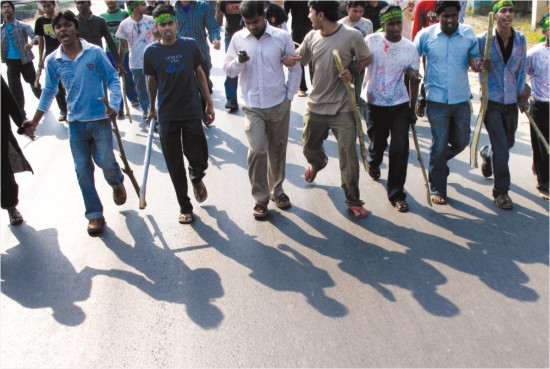
Inside
|
One Year On
Khalid Hasan dissects the opinion polls It's been one year since Sheikh Hasina raised her hand to swear an oath to faithfully execute the duties as Prime Minister of a country of 150 million people. Hasina ran on the promises of change, hope, and progress. As the reviews of her first twelve months pour in, there seems to be a mixed reaction on what the public think about her performance. Recently, The Daily Star-Nielsen conducted an opinion poll among the adult population (18 years and above, both in rural and urban areas, male and female). In the Opinion Poll 2010, the people of Bangladesh have given Sheikh Hasina and her government a split decision regarding their first year in power. Fifty-three percent of the people questioned in the survey released on January 8, 2010 appeared to be satisfied with Hasina's government while another 12% appeared very satisfied, which together make 65%. Among those surveyed, 17 percent are dissatisfied while the rest of them are indifferent to the issue raised and the question asked. Hasina's Rating Khaleda's Rating Just after the establishment of the new government, people expected Topmost Attention
People's Expectations Right Direction
Economic Trends The government must think seriously about how to disprove the naysayers and the pessimists. Moreover, it has to tackle issues related to remittances and export earnings, specifically from the RMG and textile sectors. In addition, power crisis has had a negative impact on our production and productivity. All these factors have the potential to make the general population more restive and resentful. Price Inflation and Food Security A lot of people voted for the Awami League government hoping that they would be able to control price hike of food and other essential consumer goods. Initially, AL seemed to have a control over market prices of goods, especially rice, but recently prices have begun to rise again. This has been a major thorn in the side with around 52% of the respondents saying that the efforts of the government have been "poorly mismanaged." However, 38% of them said they were happy with the government's efforts in their first year.
Political Culture Change of Names/Logos and Flattery Challenges for the New Government Law and order: Although 64% of the respondents claimed that the law and order situation has improved, the rest do not agree. Bangladesh Chhatra League: Bangladesh Chhatra League has become a grave concern for the government at present. In response to the question regarding the role of Chhatra League, the majority of the people categorically spoke against it and opposed their role and activities in the country. They mentioned that BCL cadres are involved in extortion, hall control, killing, plundering goods, etc. The respondents suggested taking stern action against those who are responsible for it. They are of the opinion that BCL activities must be controlled strictly and student politics should be banned. They further said that law and order situation has deteriorated due to them. A few voters categorically said that this issue may be a boomerang to Awami League in the next election.
TIB Index/Control of corruption: Control of corruption is one of the major challenges of the present government. The present ruling party pronounced boldly during their election manifesto about effective action against corruption. The government should be transparent in combating corruption, and the people want the process to be applied to all, irrespective of party allegiances. After taking over by Awami League government, the corruption index slightly improved. In 2009, Transparency International ranked Bangladesh as 13 in the Corruption Index. During the rule of the caretaker government, it was 7 in 2007; in 2008 the position became 10. A big challenge for the government would be to improve the ranking to around 30 in the next 5 years. The survey found that a majority of the people have shown grave concern on the neutrality of the Anti-Corruption Commission. Only 20% said the ACC is doing its job properly. If the current government becomes partial to their party workers (such as Chhatra League, Jubo League, etc), their fate during the next election will be more or less sealed. Power and Energy Crisis: Load-shedding continues to worsen as the heat drives people to use more electricity at homes and offices. The officially estimated power demand everyday is around 4,500MW against a generation of around 3,500MW. Around 800MW power is not being generated due to short supply of gas to many power plants.
The present government has taken an all-out effort to minimise the crisis. One of the important agendas of Awami League manifesto is to minimise power crisis in Bangladesh. When asked about the government's attempts to resolve the power crisis, 41% thought that the government was trying its best. However, around 24% are clearly dissatisfied with the government's attempts. Lack of Communication
Recommendations -Control and retention of commodity prices, especially those of essential food items, including rice, edible oil and vegetables. We must keep in mind that price hike is the barometer of people's satisfaction and acceptance! -Effective action against corruption -- there should not be any mercy shown to any corrupt individual or organisation, irrespective of party affiliation. ACC should get its own freedom; it should be absolutely free from political pressure. -An increase in the supply of power and energy should be topmost priority. Otherwise, dissatisfaction will start among the voters, particularly among those who voted in favor of AL, irrespective of party affiliation. -Establishment of good governance and elimination of political bias at all levels. The Judiciary should do its own business without being influenced by AL. Freedom at ACC and Election Commission is a must. To sum up, the resilient Bangladeshi people are still with Hasina's government. Although the overall situation (such as agriculture, education, food security, etc) is still in favour of the ruling party, in some of the major areas there are slight indication of either declination or less satisfaction, especially, in areas of price control of food and other essential goods, law and order situation, controlling Chhatra League, corruption, etc. Since one-fifth of the 5-year tenure has been completed, the government and the grand alliance should take up strategic plans to implement its commitment made in the "Charter for Change" before it finishes its second year. Sources: Khalid Hasan, PhD, is Managing Director, Nielsen Bangladesh, and Vice President, American Chamber of Commerce, Bangladesh.
|
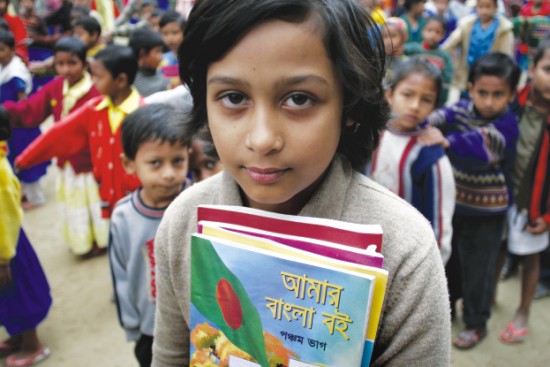

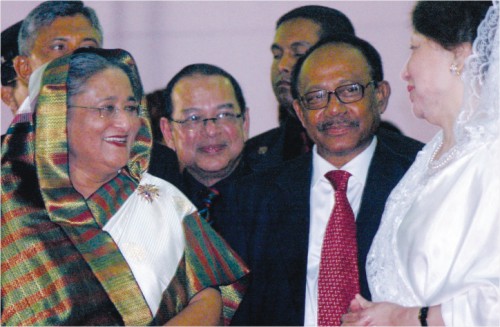
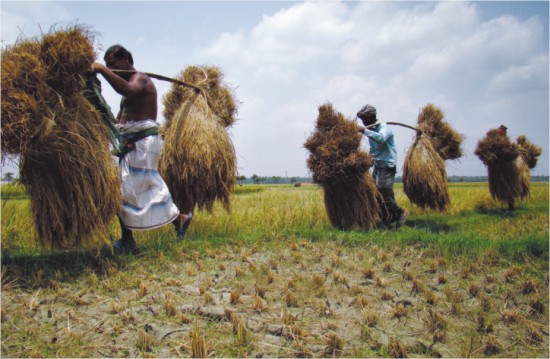

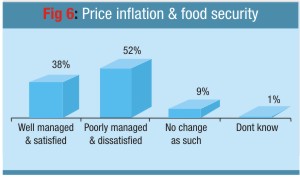 Although, the present government is planning to take a long-term policy on electricity and energy very soon, the majority of the people are not that aware of the initiatives. The government has plans to use oil, gas, coal, hydro power, wind power, and solar energy in a bid to maintain constant energy supply to the people. Big and small power generation stations, coal extraction, and oil and gas exploration will be given priority. The government is planning to increase power production to 5,000MW by 2011 and 7,000MW by 2013 and further to 8,000MW by 2015.
Although, the present government is planning to take a long-term policy on electricity and energy very soon, the majority of the people are not that aware of the initiatives. The government has plans to use oil, gas, coal, hydro power, wind power, and solar energy in a bid to maintain constant energy supply to the people. Big and small power generation stations, coal extraction, and oil and gas exploration will be given priority. The government is planning to increase power production to 5,000MW by 2011 and 7,000MW by 2013 and further to 8,000MW by 2015. 